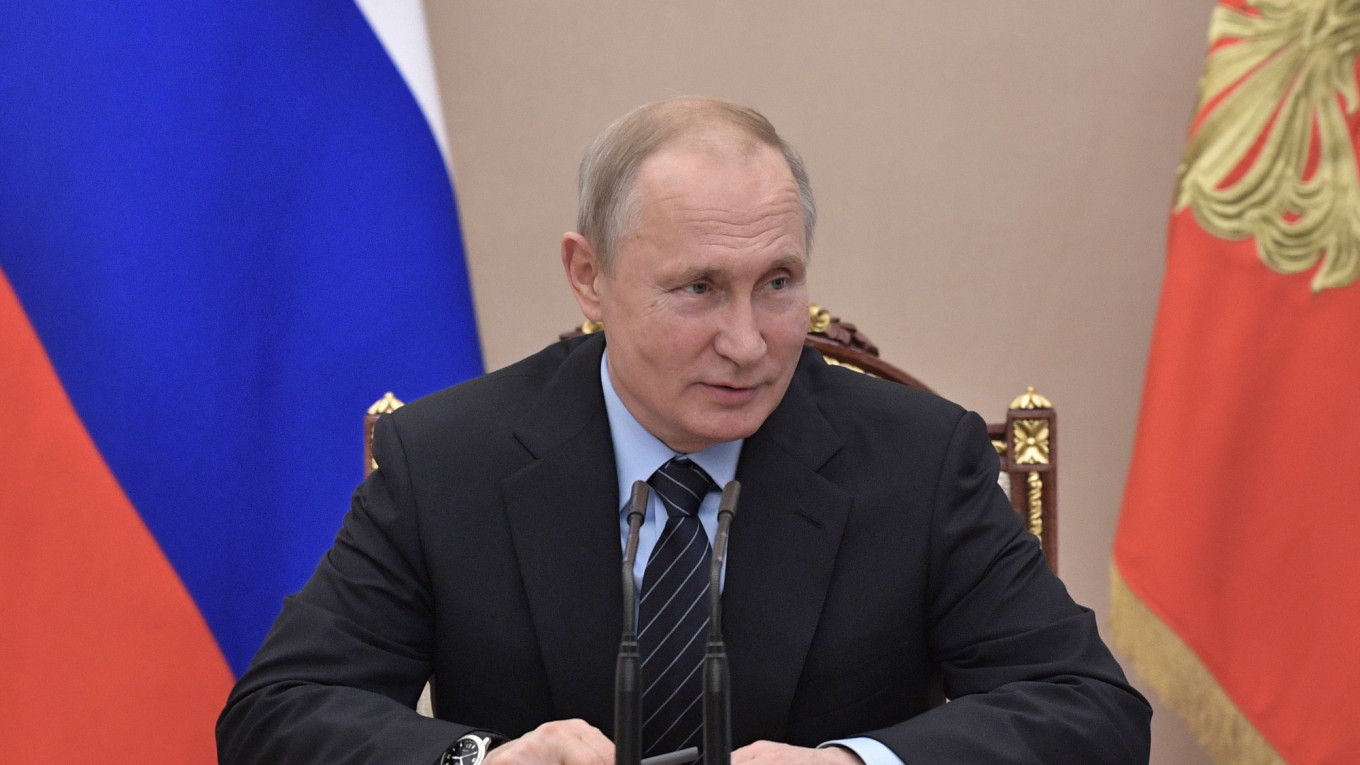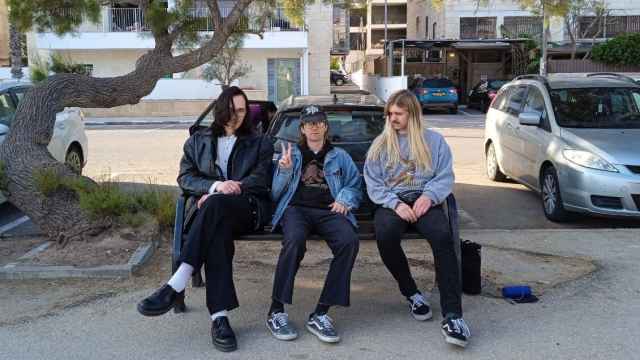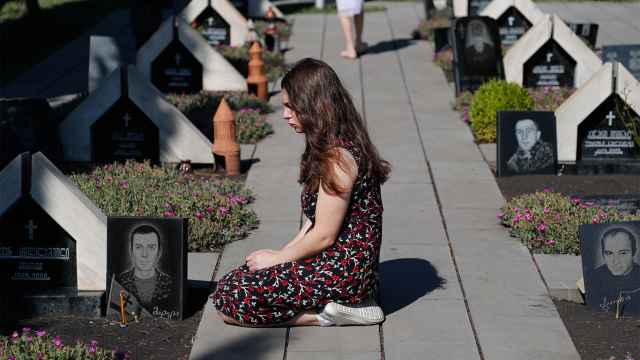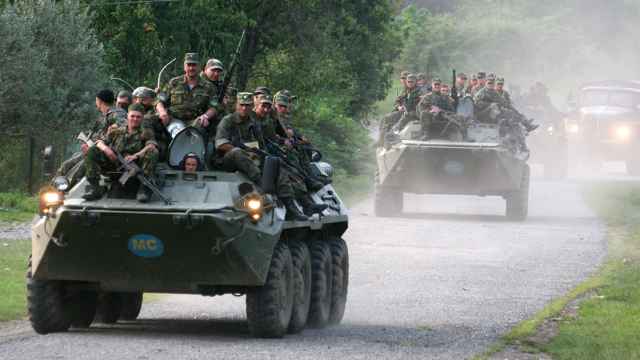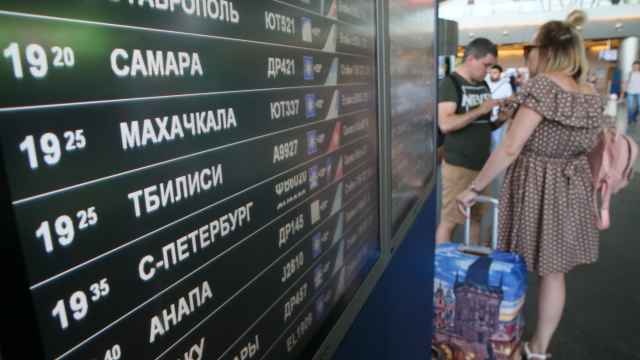President Vladimir Putin has signed a decree to suspend passenger flights carrying Russian citizens from Russia to Georgia.
The move comes amid a brewing political crisis between the two countries after mass anti-Russian protests sparked by a Russian lawmaker's visit rocked Georgia's capital on Thursday.
In a decree signed Friday, Putin also instructed the Russian government to assist Russian citizens in Georgia safely return to Russia and recommended for Russian tour companies to temporarily halt tours to Georgia.
The suspension of Russian flights carrying Russian citizens to Georgia will go into effect July 8, the decree said.
Kremlin spokesman Dmitry Peskov said the move was intended to protect Russian citizens' security.
“The situation in Georgia should be normalized and any threats to the security of our citizens should vanish,” he told the RBC news website.
Russian opposition leader Alexei Navalny condemned the move, saying it will punish Russian citizens.
“Now, many Russians will not be able to go there for an inexpensive and high-quality vacation. The question is: Why is Putin punishing Russians for Georgian protests?” he wrote on Twitter.
Thousands of protesters on Thursday tried to storm the Georgian parliament in Tbilisi after Russian lawmaker Sergei Gavrilov addressed an event for Orthodox Christian leaders in his native Russian from the parliamentary speaker's seat. Demonstrators violently clashed with police, resulting in more than 200 injuries.
Georgian officials on Friday blamed Russia for the unrest, while Moscow called the protest an “anti-Russian provocation” led by extremists.
Russia and Georgia have not had full diplomatic relations since a 2008 war between the two countries. Memories of the war are still raw for many Georgians and relations with Russia are a hot-button issue in the country's domestic politics.
A Message from The Moscow Times:
Dear readers,
We are facing unprecedented challenges. Russia's Prosecutor General's Office has designated The Moscow Times as an "undesirable" organization, criminalizing our work and putting our staff at risk of prosecution. This follows our earlier unjust labeling as a "foreign agent."
These actions are direct attempts to silence independent journalism in Russia. The authorities claim our work "discredits the decisions of the Russian leadership." We see things differently: we strive to provide accurate, unbiased reporting on Russia.
We, the journalists of The Moscow Times, refuse to be silenced. But to continue our work, we need your help.
Your support, no matter how small, makes a world of difference. If you can, please support us monthly starting from just $2. It's quick to set up, and every contribution makes a significant impact.
By supporting The Moscow Times, you're defending open, independent journalism in the face of repression. Thank you for standing with us.
Remind me later.


